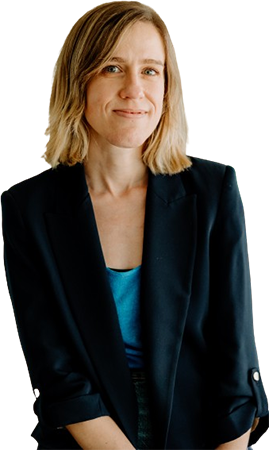



In the digital era, social media and online platforms significantly influence politics and democracy. They offer new ways for public engagement in politics but also pose challenges by spreading propaganda and misinformation, threatening democratic values. This case study highlights the importance of digital research in defending democracy and countering disinformation. As the Digital Lead Researcher, I worked closely with a team member from the Liberté! Foundation in Poland. We explored how digital research can underpin successful campaigns to protect democratic values.
In February 2023, Comms Hub joined forces with the Liberté! Foundation, a pro-democracy think tank in Poland, with a clear goal in mind: to identify digital patterns that would empower the Liberté! Foundation to design an effective digital campaign for the upcoming Parliamentary Elections in Poland. The overarching objective was to mobilize democracy advocates to vote and effect change in the government.
One of the primary challenges faced by the Liberté! Foundation was identifying which key topics would resonate most strongly with the audience and evoke strong emotions. It was not merely about identifying these topics. It also involved selecting those that were well-received by the audience and whose narratives proved effective.
Our research with Liberté! began with a quest to identify the issues and topics that concerned Polish citizens the most and that they actively engaged with on social media. We translated emotions into reactions, and out of the 15 topics given by Liberté!, Abortion, Immigration and refugees, Green Energy, Mortgage loans, public funds for the church, and euro adoption were the critical topics for Polish citizens with a solid potential to mobilize voters.
Progressive audiences’ topics: Abortion was a top-ranking issue among progressive audiences, led by women and CSOs, indicating a strong desire for legal change. Similarly, support for a secular state and no public funds for the church was well-supported. Inflation emerged as a key driver of topics such as the adoption of the Euro and Mortgage loans. This information was sent to Liberté! who run a referendum campaign including these topics.
Common grounds detection: Mapping several topics, encompassing economic and social issues, identified shared needs among diverse audiences. For instance, in Poland, despite differences, middle and progressive groups expressed a call for reform, aligning with the Euro adoption.
Broader topic mapping: Rather than specific laws, mapping broader conversations was key to capturing formal, informal, and oppositional stances. For instance, we explored housing crises instead of focusing solely on mortgage loans. Instead of mapping the abortion law, we mapped all conversations mentioning abortion (whether mentioning the law or not).
Platform selection in digital campaigns: The importance of selecting the right digital platforms for specific topics was underscored through the research. For instance, Instagram's success in driving social issue debates, like those for abortion reform among youth and women, is notable. Meanwhile, Facebook and Twitter are more effective for economic discourse. This distinction underlines the varied digital terrain in Poland, demonstrating the need to tailor platform choices to campaign goals. Moreover, due to data privacy policies, each platform, regardless of the number of users and activity, brings unique data points that are crucial for analysing and understanding the digital ecosystem.
We strengthened capacity by providing three months of training to a key member of Liberté! Foundation. Our hands-on mentorship approach focused on practical skills in critically approaching data, questioning its nuances, and effectively applying it to communication strategies. Our goal extended beyond the creation and delivery of a report; we aimed to cultivate sustainable capacity, enabling the team to generate similar insights in the future using analytical tools independently. While the term 'social listening' may sound technically complex, most of the tools we employ are designed for social scientists.
Comms Hub's role in mentoring and transferring knowledge to a Liberté! Foundation member underscores the importance of empowering organizations for independent digital research. Local analysts play a vital role in providing contextual understanding for effective research.
A Resounding Success: Data-driven research and strategic campaign crafting contributed to the campaign's success. The success of the campaign is highlighted by a significant increase in voter participation, particularly among young people and women. Despite the Law and Justice (PiS) party's victory, the results opened possibilities for a coalition between progressive and centrist forces, showcasing the campaign's influence on the political landscape.
Comms Hub is registered as Foundation International Communications Hub (FICH) with the Spanish national Register of Foundations under the number 2601. Read our privacy policy and legal disclaimer.
Join the Comms Hub community and stay informed on our latest evidence-based communications initiatives. Sign up here!